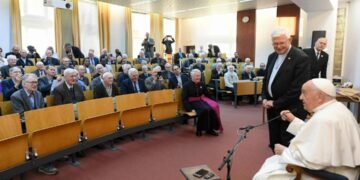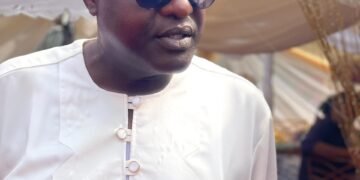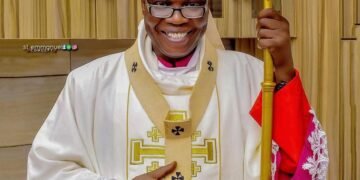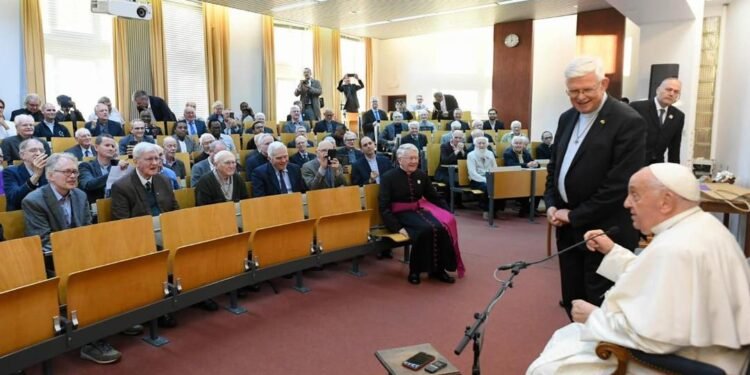By Charles Collins
In his meeting with his brother Jesuits in Belgium, Pope Francis call secularization a “complex phenomenon” and noted sometimes the Church must “confront forms of paganism.”
Speaking to 150 Jesuits in Brussels on Sep. 28, the pontiff answered a question from a member living in Amsterdam, one of the most secularized cities in the world.
In his reply, Francis noted he didn’t mean a paganism like the one in the ancient world.
“We do not need a statue of a pagan god to talk about paganism: The very environment, the air we breathe is a gaseous pagan god! And we must preach to this culture in terms of witness, service and faith. And from within we must do it with prayer,” he said in his remarks, which were published in La Civiltà Cattolica on Tuesday.
“There is no need to think of very sophisticated things. Think of St. Paul in Athens. It went badly for him because he went down a path that was not his own at that time. I look at it this way,” the pope continued.
“We need to be open, to dialogue, and in dialogue to help with simplicity. What makes the dialogue fruitful is service. Unfortunately, I often find in the Church a strong clericalism, which prevents this fruitful dialogue. And, above all, where there is clericalism there is no service. For goodness sake, never confuse evangelization with proselytizing,” he said.
Francis said Jesuit spirituality and theology gives space to the heart.
“But often, unfortunately, we do not give the right space to the heart. This deficiency, in my opinion, is one of the things that then produces forms of abuse,” he said.
When asked about the decline in the number of priests, the pope said the community is more important than the priest.
“The priest is a servant of the community. In some situations, I know in various parts of the world, people are looking within the community for those who can play a leadership role,” Francis said.
“But, for example, there are also women religious who take on this commitment. I am thinking of a Peruvian congregation of nuns who have their own specific mission: To go to those situations where there is no priest. They do everything: they preach, they baptize … If a priest is eventually sent, then they go somewhere else,” he explained.
The pope also spoke about the difficulty of giving women a more just and adequate place in the Church.
“I often repeat that the Church is woman. I see women blessed with charisms, and I do not want to limit the discussion of women’s role in the Church to the topic of ministry,” he said.
Francis also claimed masculinism and feminism are “market themes” and noted he is trying to bring women into the Vatican with roles of higher and higher responsibility.
“Things are changing; you can see and feel it. The deputy governor of State is a woman. Then the Dicastery for Integral Human Development also has a woman as its deputy. In the ‘team’ for the appointment of bishops there are three women, and since they are in charge of selecting candidates, things are much better; they are acute in their judgments. In the Dicastery for Religious, the deputy is a woman. The deputy in the Dicastery for the Economy is a woman. Women, in short, are entering the Vatican in roles of high responsibility: We will continue on this path,” he said.
Francis also spoke to a cleric involved in the Jesuit Refugee Service who mentioned the tensions caused by the war in Ukraine and the people trying to cross the Mediterranean into Europe.
Noting that the problem of migration must be addressed and studied well, the pope said migrants must be “received, accompanied, promoted and integrated.”
“None of these four actions must be lacking. That would be serious. A migrant who is not integrated ends badly, but so does the society in which the migrant lives,” he said.
“This is what the Bible says: We must take care of the widow, the poor and the foreigner. The Church must take seriously the work with migrants,” Francis said.
“I was in Lampedusa in 2013 to shed light on the migration drama. But I add one thing that is close to my heart and that I am repeating often: Europe has no more children, it is aging. It needs migrants in order for life to be renewed. It has now become a question of survival,” he added.
The pope also mentioned the Synod on Synodality, which began after his return from Belgium.
“Synodality is very important,” he said.
“It needs to be built not from the top to the bottom, but from the bottom to the top. Synodality is not easy, no, and sometimes this is because there are authority figures that do not bring out the dialogue aspect. A pastor can make decisions by himself, but he can make them with his council. So can a bishop, and so can the pope. It is really important to understand what synodality is,” Francis continued.
“And now we have come to the Synod on Synodality, where things will be clarified precisely by the synodal method. Synodality in the Church is a grace! Authority is carried out in synodality. Reconciliation comes through synodality and its method. And, on the other hand, we cannot really be a synodal Church without reconciliation,” the pope said.















































